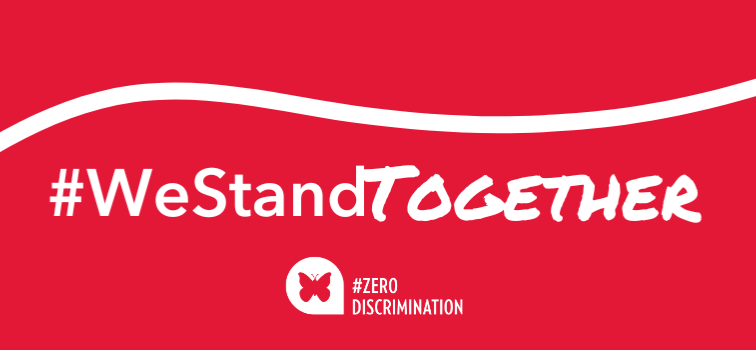Zero Discrimination Day: We Stand Together, 1 march 2025

March 1st marks the anniversary of Zero Discrimination Day, first established in 2014 by UNAIDS Executive Director.The main objective of this day is to promote the right of every person to live a full, productive, and dignified life, free from any form of discrimination.
This year, on Zero Discrimination Day 2025, UNAIDS has lauched the We stand together campaign, issuing a call to action for countries, donors, and partners to support community-led HIV responses, underlying that the right to health and the right not to be discriminated against can only be ensured by standing and facing these challenges together.
The organization emphasizes the critical and essential role that communities of people living with, at risk of, or affected by HIV have played in the global HIV response for over 40 years, despite facing numerous challenges such as stigma, discrimination, and funding cuts. UNAIDS stresses the importance of empowering these community-led organizations to continue their vital work in delivering life-saving services and advocating for those affected by HIV.
The importance of this call stems from the clear positive evidence of a community-led impact on the sustainability of the HIV response. Despite their proven effectiveness, these organizations often face obstacles such as lack of recognition, insufficient resources, and in some cases, active suppression. UNAIDS argues that removing these barriers and providing sustained investment in community-led initiatives is crucial to meeting the 2030 HIV targets. The organization also highlights the current crisis caused by shifts in US funding, which threatens the future of many life-saving HIV programs and services.
To address these challenges, UNAIDS outlines several key actions. These include ensuring that community-led organizations can legally register and receive sustainable funding, supporting their efforts to provide health services to vulnerable groups, and including community representatives in government health services. The organization also calls for an end to the criminalization of key populations and support for community-led work in monitoring human rights. By implementing these measures, UNAIDS aims to create a more inclusive and effective global HIV response that recognizes the autonomy, dignity, and the crucial role of community-led organizations.
On the occasion of the International Day Against Discrimination, UNRIC Italy shared the valuable contribution of Professor Marco Mascia, Unesco Chair Human Rights, Democracy and Peace, University of Padua.

